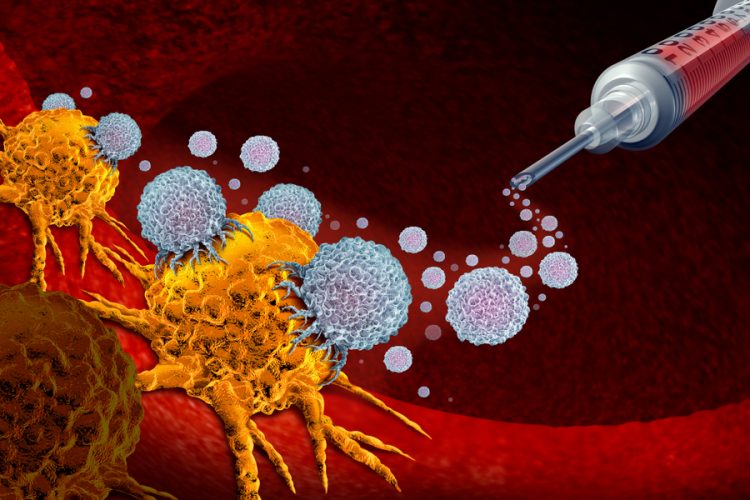Newly designed tumour vaccine could prevent cancer recurrence
Posted: 9 July 2021 | Anna Begley (Drug Target Review) | No comments yet
Scientists have used nanotechnology to develop personalised tumour vaccines which prevented cancer recurrence and metastasis challenges in mouse models.


Using nanotechnology, a team of researchers in China have designed personalised tumour vaccines based on bacterial cytoplasmic membranes and cell membranes from resected tumour tissue. These scientists say that these vaccines could potentially offer an opportunity for the development of individualised cancer vaccines to fight against a broad range of tumours.
While cancer vaccines are an effective antitumour therapeutic option, postoperative recurrence and metastasis after surgery need to be inhibited by activating the patient’s immune system. It is therefore important for scientists to find possible ways to train the patient’s immune system to find these tumour cells. One option is to use surgically removed tumour tissue to make a patient’s own vaccine, however since there is a small difference between the tumour’s antigens and the body’s own proteins, the antigens may be recognised as “self” by the patient’s immune system. As such, tumour antigens are more likely to induce antigen-specific tolerance than antitumour immunity.
The team, led by Professors Guangjun Nie, Yan Wu and Yuliang Zhao from the Chinese Academy of Sciences (CAS), thus aimed to develop an anticancer vaccine that would educate the patient’s immune system but would not induce side effects. They began by designing a hybrid membrane nanovaccine for personalised immunotherapy. The tumour membrane antigens and bacterial inner membrane were fused and displayed on the surface of polymer nanoparticles, before introducing cytoplasmic membranes of E. coli into the hybrid membrane nanoparticle vaccines to induce dendritic cell (DC) maturation, thereby activating splenic T cells.
The hybrid membrane-coated nanoparticles present a novel vaccine strategy that simultaneously delivers antigens and adjuvants to DCs to provoke robust innate and tumour-specific adaptive immune responses. In mouse tumour models, the researchers found that this strategy prevented tumour recurrence with prolonged tumour-bearing animal survival and tumour-specific, long-term protection against tumour re-challenge. This hybrid membrane-based antitumour immunity platform therefore offers a new opportunity for the development of personalised cancer vaccines which could target a wide range of tumours in the future.
The study was published in Science Transitional Medicine.
Related topics
Disease research, Immunology, Nanomedicine, Nanotechnology, Oncology, Personalised Medicine, Vaccine
Related conditions
Cancer
Related organisations
Chinese Academy of Sciences (CAS)
Related people
Professor Guangjun Nie, Professor Yan Wu, Professor Yuliang Zhao



